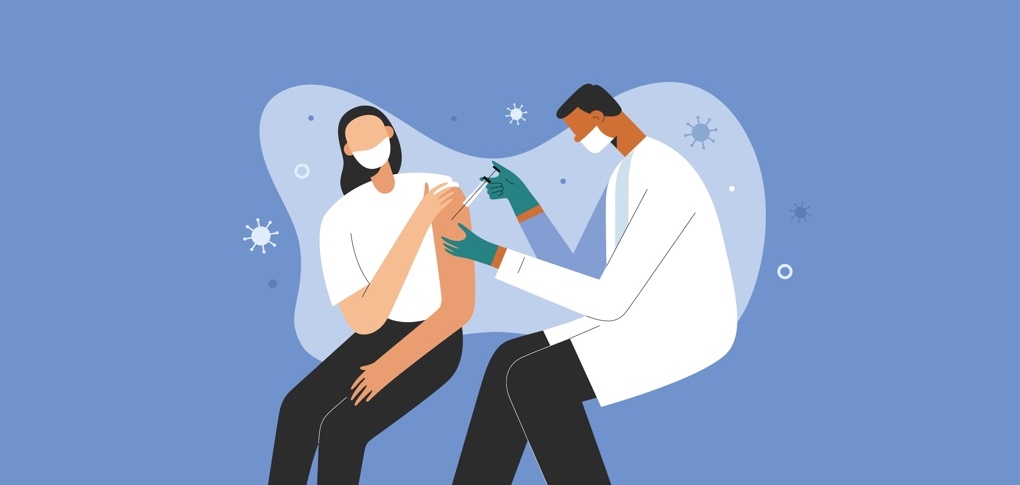Hong Kong, 31 March 2021: Patrick Nip, the Secretary for the Civil Service, doesn’t strike me as a party animal. He’s hardly the sort of guy to have a few drinks, let his hair down and start a conga line. That said, he’s leading us all a merry dance with his Covid-19 vaccination rollout, which goes something like this:
You put your left arm in, your left arm out
In out in out, you shake it all about
You do the hokey cokey and you turn around
That’s what it’s all about!
With his degrees in Social Sciences and Public Administration, someone thought it would be a good idea to put Mr Nip in charge of our city’s vaccination programme. Alas, it has been plagued with problems: a delayed start due to delivery “hiccups”; suspicion over our government’s approval of the mainland-produced Sinovac vaccine without certain clinical data; fears over side-effects following (unrelated) patient fatalities; and a slow take-up rate which left the operation running at half capacity. And all this before health officials last Wednesday suspended use of the second vaccine, the German-made BioNTech jab, amid fears over suspect packaging.
Underpinning this sorry saga is our government’s desperately poor communication – a lack of clear, concise and coordinated public health messaging – typified by first the chaos and then the fallout from the BioNTech adjournment. Some of our city’s 21 vaccination centres had already given out BioNTech doses last Wednesday morning before they received the suspension notice. The jabs were halted without explanation, causing dozens of disgruntled citizens to refuse to leave. The South China Morning Post quoted one individual who persuaded medical staff to give him his shot anyway. Mr Nip – a former Director of Information Services, by the way – admitted there had been communication issues.
The BioNTech jabs were stopped after medical staff identified some 50 faulty vials, although scientists were divided over whether the suspension was a sensible precaution or major overreaction. Sinovac vaccinations are continuing. Meantime, citizens such as myself who have already received our first BioNTech dose are assured there is absolutely nothing to worry about. We are also told an investigation by the manufacturer and its distributor here, Fosun Pharma, hasn’t found any systemic problems and the programme will resume “as soon as possible”. My second jab is due on 7 April but I’ve heard nothing. What is certain, however, is that this unfortunate episode has further undermined Hongkongers’ fragile trust in the vaccination programme.
After one month, some 455,000 citizens – just 6.1% of the population – have received their first shot. We are making painfully slow progress at a time when the personal and collective benefits of vaccination are obvious. Better educating the public is key. In this regard, I recommend Dr David Owens’ latest podcast with Professor Ben Cowling in which they discuss the effectiveness of Covid-19 jabs and the challenges of vaccine hesitancy.
Amid inoculation inertia, we are at least buoyed by an easing of some social distancing and travel rules as the so-called fourth wave of Covid-19 peters out. These include the reopening of swimming pools and beaches (finally!); allowing non-residents (but only from Australia, New Zealand and Singapore) to visit our city for the first time since an entry embargo on foreigners was introduced a year ago; and the lifting of a travel ban on Hong Kong residents stranded in the UK. Quarantine regulations remain stringent, of course (21 or 14 days, depending on where you arrive from). Hong Kong yesterday recorded seven new coronavirus infections – six of them imported – taking our cumulative total to 11,461, with 205 related fatalities. We are told to expect fewer than 10 new cases today.
Returnees will step back into a politically transformed Hong Kong. Sweeping changes to our city’s electoral process were confirmed yesterday by China’s National People’s Congress Standing Committee. These include creating a “Candidate Eligibility Review Committee” to vet all election hopefuls for the Legislative Council and expanded Election Committee, and this body will be assisted by our city’s Committee for Safeguarding National Security, which is chaired by Chief Executive Carrie Lam. She has dismissed any conflict of interest concerns. Suffice to say, pro-democracy legislative councillors are now a footnote in history.
It is clear this “patriots governing Hong Kong” policy requires all citizens to march to the same beat. Or goose-step, in the case of our disciplined services, who will perform this type of foot drill on National Security Education Day (15 April, mark your diaries) after being trained by the People’s Liberation Army. Goose-stepping originated in the Prussian army in the 18th century and became widely used thereafter. For many, it is most closely associated with Nazi Germany. Visionary author George Orwell wasn’t a fan of this display of military might and neither am I.
On a far happier note, the Formula One season has started and I was delighted to host friends over the weekend to watch the Bahrain Grand Prix on TV. Grandson Nathan – a new convert to the sport – was tearful when Lewis Hamilton finished “only” second in qualifying, so his hero’s ultimate victory produced a jig of delight. Not the hokey cokey, though, that’s for our civil servants.
Stay safe and well, everybody!
Colin Cohen
Senior Partner
Boase Cohen & Collins



